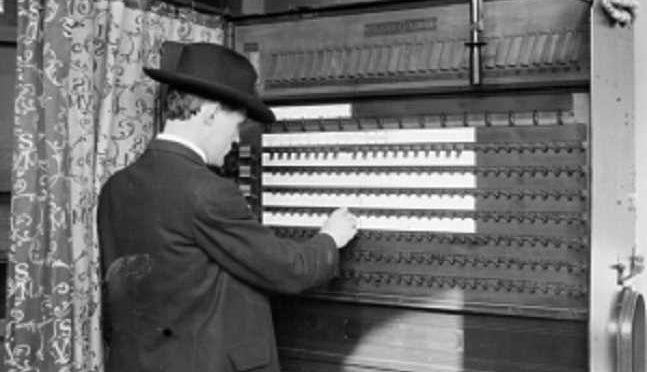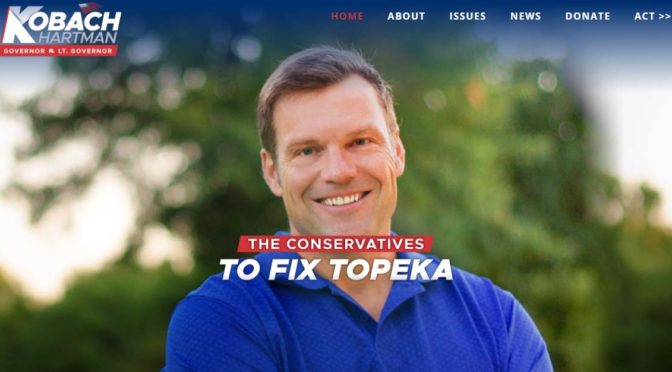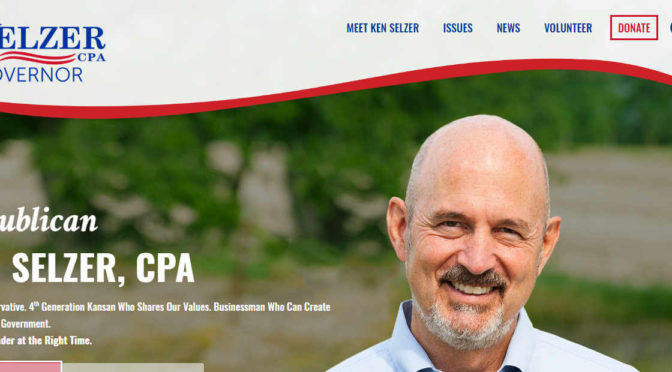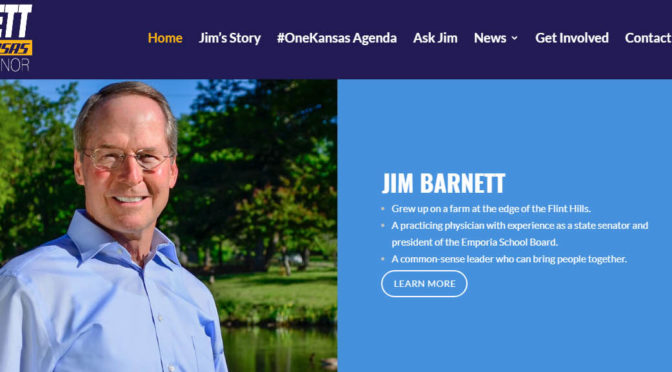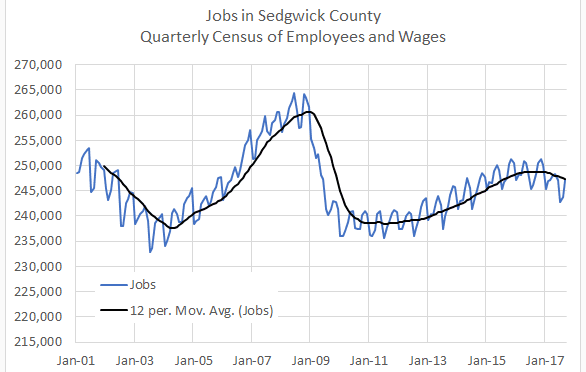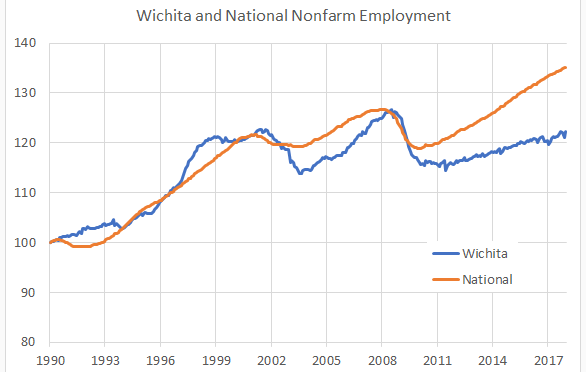The Project Wichita survey is about to end. Will it have collected useful data?
Project Wichita is “a community engagement process to identify the future we want for our home and the steps necessary to achieve it.” So far it has held focus groups that collected ideas for the future of Wichita, in which “an astounding 3,800+ people shared their vision in 239+ focus groups,” according to the project’s Facebook page. The survey, which is ending on July 6, is another component of the “listen” phase of the project, with “focus” and “share” phases still to come.
The survey may be taken on-line or by paper. The online survey is implemented as a number of pages, each concerning a topic. The first page is titled “Vision for Our Region: Please indicate your level of agreement with the following for developing a vision for the Wichita region. Our region should be a place that:” Following are several items like “all children have the chance to succeed.” Respondents are asked to select one of these responses for each item:
- Strongly Disagree
- Disagree
- Undecided
- Agree
- Strongly Agree
The second page is titled “Strong Neighborhoods. Please indicate the importance of investing resources (time, human resources, money) in the following for developing and supporting safe and strong neighborhoods throughout our region.” A sample item is “Repair deteriorating homes to improve neighborhoods.” Respondents may choose from these responses:
- Not important investment
- Slightly important investment
- Moderately important investment
- Very important investment
- Essential investment
There is no opportunity to answer in any way other than these responses. There is no possibility of leaving a comment.
The question of the importance of investment continues with slight variation for six more pages on these topics:
- Economic Advantage and Opportunity
- Transportation
- Cultural Arts
- Attractions and Entertainment
- Education; Community Wellness
- Wichita Riverfront and Downtown Development
Then a page titled Regional Perspectives: “Please tell us your thoughts about the following regional questions” where participants are asked to indicate their degree of agreement or disagreement with the following:
- I think an increase in population would make the Wichita region thrive.
- I am optimistic about the future of the Wichita region.
- I think the Wichita region has to be willing to change to keep and attract the next generation.
Then there are some demographic questions.
Problems
First, the responses that the project will collect are from a self-selected group of respondents. There is no way to guarantee or know that the respondents are a representative sample of area residents. The focus groups had the same problem. This has been a problem with Wichita’s outreach in the past. In 2014 the city was quite proud of its engagement and positive response regarding the proposed city sales tax. Then, on election day, 62 percent of voters said no. (Of course, those who vote are also a self-selected group of respondents. On the sales tax question, 103,290 people cast a vote. For that year, the Census Bureau estimated there were 283,780 people of voting age in Wichita. So 36.4 percent of the eligible voters made the decision for the rest, voters and non-voters, and also for those too young or ineligible to vote. But when we ask to settle issues by voting, voters are the people who make the decisions.)
Another problem has to do with the preface to the many questions asking about the importance of making investments in various things. What is missing is whose resources are to be invested? Yours? Mine? Someone we don’t know?
Related is that almost all the items participants are asked to rate are things that almost everyone agrees are good. Who could not strongly agree with investing so that “all children have the chance to succeed?” I suppose that some people might select “Very important investment” instead of “Essential investment” for some items. That might produce a shade of difference in the importance of items.
What would really be useful, however, is asking participants to rank the importance of investing in each item, from most important to least important, with no ties allowed. Instructions might be worded like “Rank the importance of investing in the following five areas. 1 is the most important investment, while 5 is the least important. You must assign a rank to each item, and there may be no ties.”
Then, to make things really useful: Ask participants to produce rankings for the importance of public sector investment, and separate rankings for the importance of private sector investment.
Understanding and distinguishing the difference between public and private investment is vital. When people believe that others will be paying, there is no limit to what people want. Milton Friedman knew this: “When a man spends his own money to buy something for himself, he is very careful about how much he spends and how he spends it. When a man spends his own money to buy something for someone else, he is still very careful about how much he spends, but somewhat less what he spends it on. When a man spends someone else’s money to buy something for himself, he is very careful about what he buys, but doesn’t care at all how much he spends. And when a man spends someone else’s money on someone else, he doesn’t care how much he spends or what he spends it on. And that’s government for you.” (For more, see Friedman: The fallacy of the welfare state.)
People recognize this. Remarks left on Facebook on the Project Wichita page included this by one writer:
Just took survey! One would think “they” want to convert Wichita or Kansas to socialism. I’m a liberal conservative Democrat and yet questions are very concerning and disturbing.
Following up, the same person wrote:
Applaud the effort however many of the questions concerning me as it relates to governments role in community and well-being of such. … At what point should community and individuals be primarily responsible for many of the topics you address in your survey?
Another Facebook user wrote:
Your survey is great but you left out a very important piece of information. WHO is going to provide the money for the investments that are queried in your survey? A lot of areas need investment of funds but, those funds should come from the private sector, not public sector. As a result of the inability to discern a difference in the source of required investments, the survey is somewhat useless.”
Yet another from Facebook:
Each of your questions should be followed by the question, “How much are you personally willing to pay for this line item” or “Which government service should be eliminated to pay for this line item”. Your list will get quite short when people are asked to spend their own money rather than other people’s money.
These basic defects preclude this effort as being serious social science research. Yet, that is likely how it will be presented, especially since a university agency is involved.
Of note: Project Wichita has no official opinion as who should pay for these investments. Cynics — that is, realists — believe that programs like Project Wichita are designed to convince citizens to support increased taxes or debt issues to be repaid with future taxes, with those future taxes undoubtedly higher.
One reason for this suspicion is that portions of the Project Wichita process are being managed by Wichita State University’s Public Policy and Management Center. Its director and its associated academics have a clear preference for higher taxes, at one time writing a paper advising cities to create “more willing taxpayers.”
Other people and companies that Project Wichita identifies as part of the “Vision Team” (or “funders”) also made large contributions to the campaign for a Wichita City sales tax in 2014:
- Allen Gibbs & Houlik, L.C.
- Jon Rolph and his company Sasnak
- The Chandler family and Intrust Bank
- GLMV Architecture
- Emprise Bank
- Spirit Aerosystems
- Commerce Bank
- Equity Bank
- Cox Machine
- Westar Energy
- Professional Engineering Consultants
- Star Lumber
- Bothner & Bradley and its principals
- Envision
- Lubrication Engineers
- Jeff Fluhr, head of Downtown Wichita and now also Greater Wichita Partnership
Some of these companies regularly receive economic development incentives from the City of Wichita or do business with the city. Some are subject to the city’s regulations such as zoning and permitting.
It’s difficult to digest all this without concluding that Project Wichita project is designed to develop a case — an appetite — for higher taxes. That’s even before realizing that the driving force behind Project Wichita — according to word on the street — is Jon Rolph, who was the chair of the campaign for the Wichita city sales tax in 2014. Further, Project Wichita is sharing offices with the Greater Wichita Partnership and Downtown Wichita, two organizations always in favor of the expansion of government.
Individual questions
Besides general problems with the survey instrument, there are these problems with individual items:
“Improve the current public transit system (e.g. expand routes, expand hours).” There may be support for spending public funds on this, even if it means raising taxes. This was one of the uses for the proposed Wichita city sales tax in 2014. It was bundled with other items, and voters defeated the tax.
“Make flights from Wichita Eisenhower National Airport more affordable.” We’ve spent a lot doing this. The city and the airport say the programs have been successful.
“Increase direct flights from Wichita Eisenhower National Airport.” This is an area that could use improvement. The number of departures and the number of available seats on departing flights has been underperforming the nation, despite much investment in the forms of tax-funded subsidies for airlines. There is also a new airport terminal.
“Offer more diverse entertainment options (e.g. music festivals, restaurants, theme parks).” There are many people trying to figure out what type of restaurants are wanted in Wichita, and where. These people are motivated by profit. It’s difficult to believe that government could do a better job of deciding upon, and operating, restaurants.
“Support entrepreneurial opportunities.” There is an organization doing this, e2e. More broadly, when the city offers economic development incentives, it makes it harder for young, entrepreneurial companies to survive as they must bear the cost of incentives and compete with incentivized companies for labor and capital.
Under education, a topic that is glaringly omitted is school choice. Parents like having the possibility of school choice, especially parents who can’t afford private school tuition. Plus, school choice, like charter schools, could help control “sprawl,” something that is often seen as a negative factor. If parents who want to live in central Wichita could have access to school choice in nearby schools, it might counter the commonly-held perception that if you want good schools for your children, you must buy a home outside the Wichita school district.
“Provide modern performing arts center (e.g. symphony, music theater, opera) that meets the region’s needs.” and “Provide a modern convention center that attracts more conventions and events.” These are topics that Wichita will likely be grappling with soon, and in a real way. Wichita has already hired a consultant to study this issue. (More information is at Century II resource center.) A task force is studying the issue. Soon, it is quite likely that residents of Wichita or Sedgwick County may be asked to approve a sales tax to fund a convention center and possible a performing arts center. Or, citizens suffer the implementation of Design Build Finance Operate and Maintain (DBFOM), or P3. In this model as applied to Wichita, a third party would do all the work of designing, financing, building, and operating a convention center and possibly a performing arts center. Then, the city simply pays a fee each year to use the center, called an “availability payment.” This is simple a way to disguise long-term debt. See Wichita about to commit to more spending. Bigly. for more about this.
Cynics — that is, realists — believe that programs like Project Wichita are designed to convince citizens to support these taxes or debt issues. (By the way, the convention center business is a poor way to build a city’s economy. See Should Wichita expand its convention facilities?.)
—
Notes

